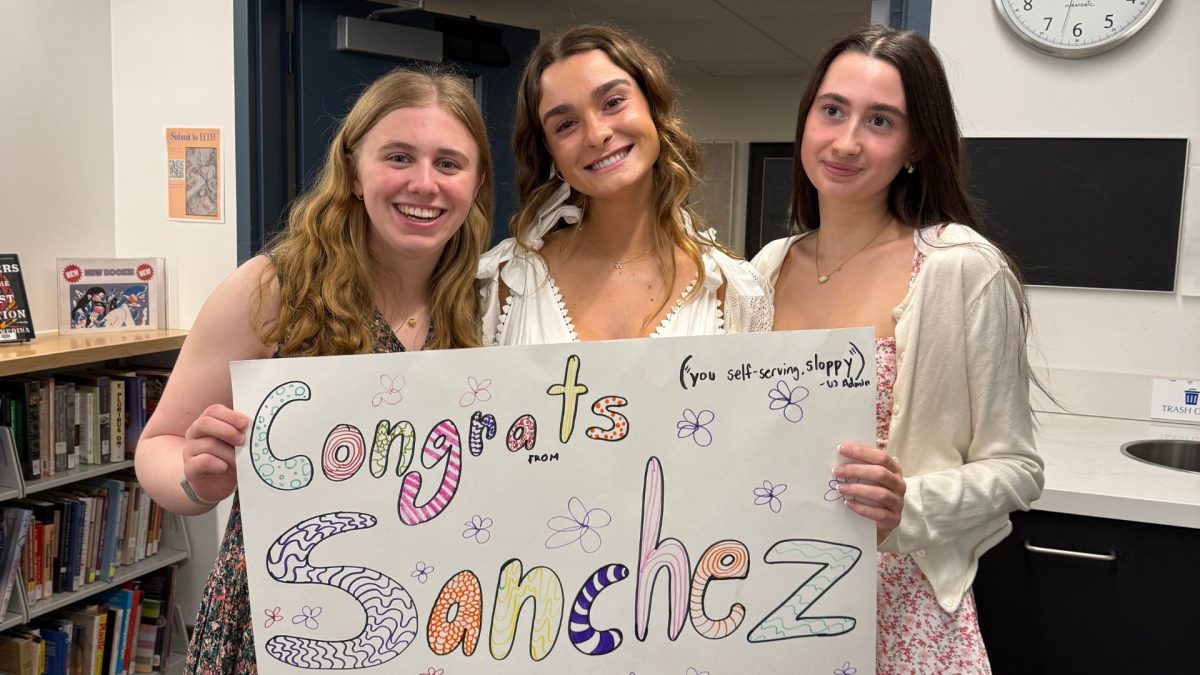By Eric Gofen
In a typical Latin School gathering, there are upwards of twenty different speakers, so it would be easy to have missed Mr. McCutcheon’s announcement looking for students interested in scientific research. Yet there are wonderful scientific research opportunities that occur at Latin every year.
During his high school career, senior Brian Lorenz has participated in numerous research projects, which he describes as “shaping [his] views on science and helping lay the path [he] would follow for the rest of [his] high school career, potentially further.”
Over the past few years, Latin’s most consistent scientific research opportunity has been in the field of pulsars. The project is called the Pulsar Search Collaboratory (PSC). Students have the chance to analyze data gathered from the world’s largest fully steerable telescope, located in Green Bank, West Virginia. Much of the data gathered from the Green Bank telescope is set aside for only high school students, and Latin receives some of this data for their young researchers. Mr. McCutcheon describes three main goals for students in the project as learning science, discovering how to read data, and actually finding new pulsars.
At this point, a curious student might ask, “That all sounds super cool, but what is a pulsar?” A pulsar, short for “pulsating star,” is a spinning star at the culmination of its life. Made up of neutrons, pulsars send electromagnetic radiation in the form of radio waves. From Earth, scientists observe the path of the radio waves to determine the position of these pulsars. In and of itself, locating a pulsar is impressive—Brian describes his experience as “very cool”—but these discoveries have even greater applications. Gravity waves, or ripples in the fabric of space-time, are a relatively new phenomenon in the science world. By looking at pulsars that students discover, scientists are just beginning to create a visual representation of what these gravity waves would look like if humans could view them as visible light. The PSC project is partnered with the NANOGrav research program, which is a group of scientists that aim to create this visual representation. In his letter, Mr. McCutcheon describes the concept as “wild stuff,” but that doesn’t even fully cover how awesome it is for Latin students to have the opportunity to help leading experts advance humanity’s understanding of science itself.
Thirteen Latin students have helped with PSC in the past, and there is again strong interest this year, though the project can always use more students. In addition to PSC, many other Latin students are conducting scientific research.
Along with Mr. McCutcheon, Chloe Reum, Logan McCutcheon, and Bella Shindler are in the middle of a project focusing on “Astrobiology and the Emergence of Life.” During the summer, they took a University of Illinois course on the “Emergence of Life,” and they are now connecting with researchers at the Field Museum to study how life emerged on earth.
Grace Gardner is also working with scientists at the Field Museum, where she expects to prep mammal specimens for taxidermy.
Brian Lorenz is building off his work with researchers at the Adler Planetarium to see if he can use weather balloons to detect indications of life in the Earth’s atmosphere.
Alden Sulger is continuing summer work on Aquaponics by attempting to design, build, and produce a fully functional aquaponic system.
Along with joining the PSC, Rishav Dasgupta is studying the lives of stars and plans to obtain NASA data to investigate stars that aren’t classified as pulsars.
These are only some of the many student research projects currently going on at Latin. In the words of Brian Lorenz, they signify the massive array of “incredible opportunities students can pursue if they desire.”
Mr. McCutcheon says he would love to help more students chase their passions and possibly discover some new pulsars, and he encourages anyone interested in joining the research effort to contact him.
]]>



















































